KodyWallice
Member
- Joined
- May 7, 2021
- Messages
- 123
- Reaction Score
- 1
- Points
- 23
- #1
I’ve taken a lot of photographs in my day and I’ve noticed a lot of things. One of these things has to do with darker, underexposed photos. It seems as though underexposed images are slightly noisy when compared to their well exposed counterparts. Now, when I say “darker,” I mean underexposed. I don’t mean photos that were taken in dark settings. Those types of photos can have a very acceptable exposure that there’s nothing wrong with. Being underexposed is something completely different. Being underexposed means that an insufficient amount of light was allowed to hit the camera’s sensor as the image was being captured. Darker photos are simply dark, but may have had a sufficient amount of light touch the sensor for that particular scene.
Anyway, since I’ve only noticed this type of occurrence, I thought I’d run a little experiment to see if what I think is true, is actually true. And this is why I’m writing today.
In today’s post, I’m going to quickly compare the quality of six photographs I just took in my office. I have a bookshelf with a few books on it that I thought would be the perfect subjects. I partially closed the curtains to make the room slightly less flooded with light and I used a tripod to make sure the conditions between photos were constant. What I’m going to do below is simply show you the output of a few shots with different shutter speeds. I’ll talk more about that below.
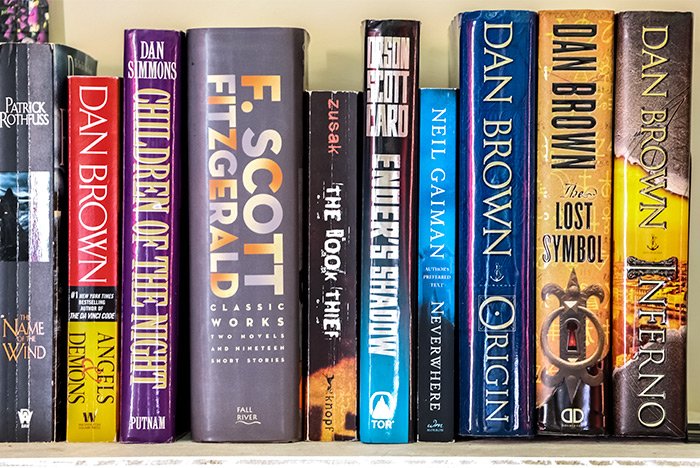
As I mentioned above, I took six photos. I began by underexposing them, moved towards a normal exposure and them finished up with a shot that’s slightly overexposed. The results were exactly as I expected them to be. The darker images were noisy and that noise lessened as the later images were more exposed. What struck me was how beautiful the final shot was. Being overexposed virtually eliminated any noise in the shot and I was able to easily reduce that exposure during post-processing. It was as smooth as smooth can be.
Below, I’ll show you the darkest photo in its entirety. After that, I’ll show you enlarged portions of the remaining images so you can get a better idea of the noise we’re dealing with. I’ll also note the shutter speed above each shot. Here’s the first one.
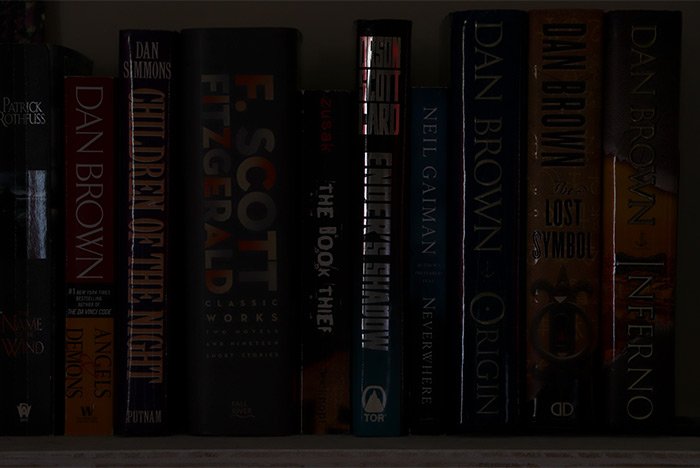
Here’s the same shot enlarged a bit.
Shutter speed: 1/30 of a second.
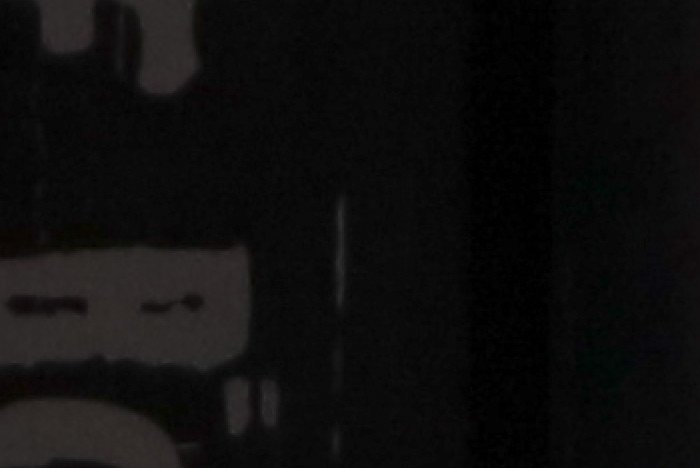
Shutter speed: 1/20 of a second.
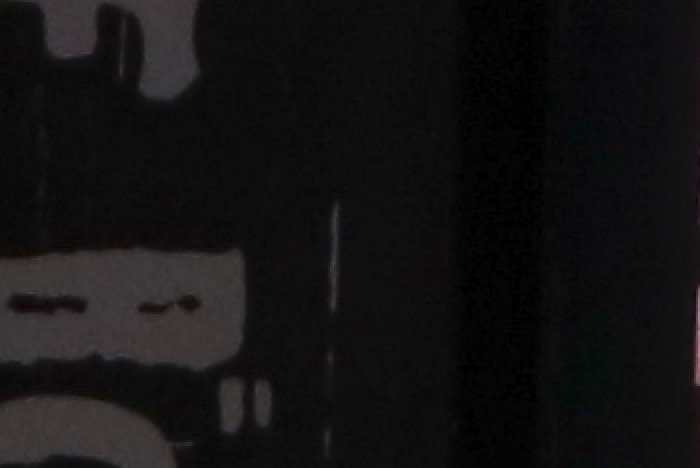
Shutter speed: 1/10 of a second.
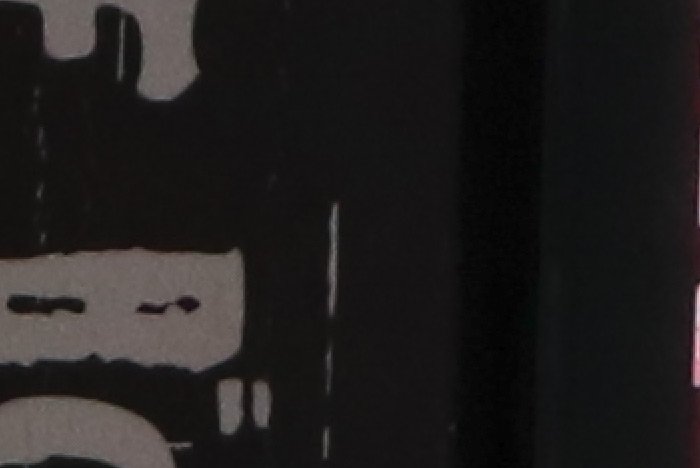
Shutter speed: 1/5 of a second.
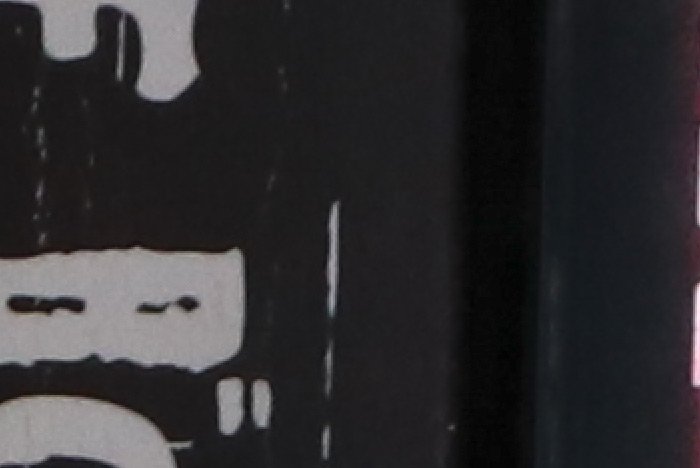
Shutter speed: 1/2 of a second.
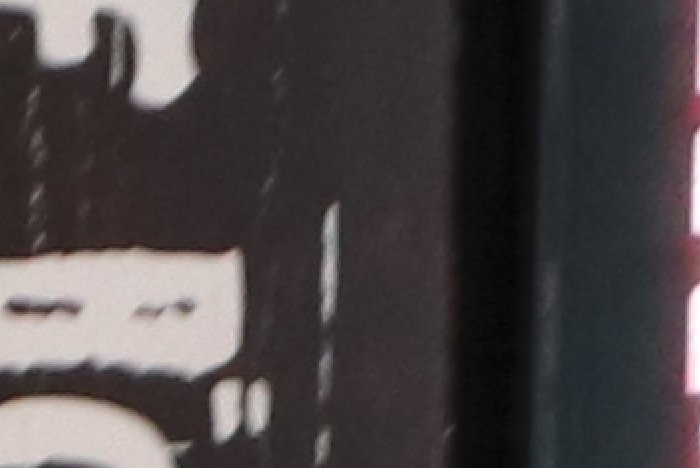
Shutter speed: 1.3 seconds.
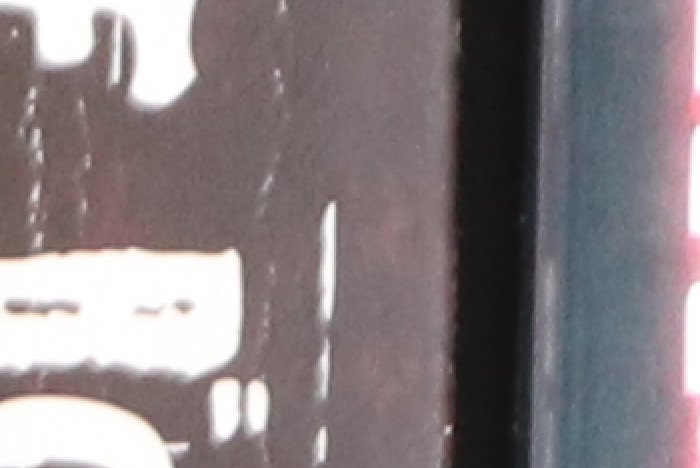
I hope I clearly explained how photographic underexposure can have a detrimental effect on the quality of the images we capture. If you have any questions regarding this post, please let me know below. Thanks for reading!
Anyway, since I’ve only noticed this type of occurrence, I thought I’d run a little experiment to see if what I think is true, is actually true. And this is why I’m writing today.
In today’s post, I’m going to quickly compare the quality of six photographs I just took in my office. I have a bookshelf with a few books on it that I thought would be the perfect subjects. I partially closed the curtains to make the room slightly less flooded with light and I used a tripod to make sure the conditions between photos were constant. What I’m going to do below is simply show you the output of a few shots with different shutter speeds. I’ll talk more about that below.
The Subject
These are the books I just photographed. This particular shot is the best one. I just lowered the exposure level slightly in Adobe Camera Raw a bit to make it look as good as possible. Take a look.
The Comparison
To complete this experiment, I decided that full manual mode was in order. The only aspect I wanted to change was the shutter speed, so I kept everything else the same between photos. I set the aperture to f5.0 and the ISO to 800. I used my Canon Rebel T7i, which looks really good at this ISO level. The reason I raised it up was because I wanted to replicate what the camera might choose automatically for a scene like this. I also wanted to lock that value in.As I mentioned above, I took six photos. I began by underexposing them, moved towards a normal exposure and them finished up with a shot that’s slightly overexposed. The results were exactly as I expected them to be. The darker images were noisy and that noise lessened as the later images were more exposed. What struck me was how beautiful the final shot was. Being overexposed virtually eliminated any noise in the shot and I was able to easily reduce that exposure during post-processing. It was as smooth as smooth can be.
Below, I’ll show you the darkest photo in its entirety. After that, I’ll show you enlarged portions of the remaining images so you can get a better idea of the noise we’re dealing with. I’ll also note the shutter speed above each shot. Here’s the first one.

Here’s the same shot enlarged a bit.
Shutter speed: 1/30 of a second.

Shutter speed: 1/20 of a second.

Shutter speed: 1/10 of a second.

Shutter speed: 1/5 of a second.

Shutter speed: 1/2 of a second.

Shutter speed: 1.3 seconds.

The Results
Do you see how the quality of the images got progressively better as they were more and more exposed? I’d say we can learn a lot from this little experiment. Primarily that we should be careful when using manual mode that we don’t accidentally underexpose photos. Well, we should be careful when using all the modes, but manual is much more prone to error because of the freedoms inherently offered with it. Also, if I had a preference, it would be to slightly overexpose an image and, like I did above, reduce that exposure in post-processing. As you can see from my leading photo, the quality is very high.I hope I clearly explained how photographic underexposure can have a detrimental effect on the quality of the images we capture. If you have any questions regarding this post, please let me know below. Thanks for reading!
